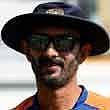Will next-gen lead India to T20 glory?
As Kohli and Sharma retire, GN Focus explores India's vision for the 2026 T20 World Cup

There is never a dull moment in Indian cricket. Now that the Men in Blue have ended their trophy jinx with the T20 World Cup in June in the US and West Indies, chirping will begin soon on whether gen-next is ready to defend the crown in less than two years, in the 2026 edition.
The event will be held jointly in India and Sri Lanka, which effectively means that the pressure of retaining the title in front of the home crowd will be manifold. Add to this the fact that neither Virat Kohli or Rohit Sharma will be at hand to shore up the innings if need be, with both having bid adieu to the format — alongwith the effervescent all-rounder, Ravindra Jadeja.
Can a new captain in Suryakumar Yadav, not to speak of a bunch of wannabe stars be capable enough of soaking in the pressure to deliver on the big stage? The event will be held jointly in India and Sri Lanka, which effectively means that the pressure of retaining the title in front of the home crowd will be manifold. Add to this the fact that neither Virat Kohli or Rohit Sharma will be at hand to shore up the innings if need be, with both having bid adieu to the format — alongwith the effervescent all-rounder, Ravindra Jadeja. Can a new captain in Suryakumar Yadav, not to speak of a bunch of wannabe stars be capable enough of soaking in the pressure to deliver on the big stage?
Well, it’s anybody’s guess, as the sheer depth of talent — or consistency — in the non-stop bilateral events is no guarantee to clinch those vital moments in the knockout stages, as Indian cricket fans will testify. The heartbreak of the 50-overs World Cup final in Ahmedabad last year, when the team looked unstoppable with an all-win record is a scar that even the recent triumph can’t really heal.
However, a run through of the T20 line-up of the Men in Blue in the two series immediately after the World T20 was reassuring enough to convince one that the future is in safe hands.
Ponder this: with neither of the big two available and Jasprit Bumrah rested to manage his workload, the Indian squad for the Sri Lanka tour boasted the likes of Shubman Gill as the new vice-captain, Yashasvi Jaiswal, Rinku Singh, Riyan Parag, Rishabh Pant, Washington Sundar, Ravi Bishnoi and Arshdeep Singh — in the company of seasoned campaigners like Suryakumar Yadav, Sanju Samson and of course Hardik Pandya.
The embarrassment of riches saw someone like Ruturaj Gaikwad, the Chennai Super Kings captain and eighth in ICC T20I rankings at the time of writing this, missing the cut — something which raised a major storm in social media circles.
“We are blessed to have an enviable assembly line of talent and one will have to thank the IPL to provide such an exposure to our youngsters,” says Vikram Rathour, India’s batting coach over the past five years , and who finished his tenure alongwith Rahul Dravid.

Speaking to Gulf News, Rathour — who had also been a national selector — gives a reality check though. “Let’s face it, it’s not possible to replace the likes of Kohli or Rohit Sharma for they are generational players. However, there’s plenty of talent at our disposal and I would single out the likes of Gill, Jaiswal and Pant to be the future leaders of the batting group as they would continue to play in all three formats for a long period of time,” says the former India test opener.
Echoing a similar sentiment about the current crop, especially in terms of batting strength, is Woorkeri Raman, the former India women’s team coach and who was very much in the reckoning to succeed Dravid in the hot seat alongwith Gautam Gambhir.
“It’s a happy situation to be in as far as the T20 landscape is concerned. The likes of Gill, Jaiswal or Gaikwad have already got plenty of exposure for their age and have what it takes to mount a title defence. Remember, there will be enough bilateral cricket between now and the next T20 World Cup, alongwith a season of IPL, to plug any slots if need be,” says Raman, a graceful southpaw for India in the late 80s and 90s.

The need for them to play fearless cricket, which has almost become a cliché in the context of this format, cropped up once again and the pragmatic Raman feels it’s a question of walking the talk more than anything else. “It’s up to the team management to create a recipe for success. Clichés can be described in different results,” he says.
A closer look at the arsenal of new India, however, shows some thinness in the bowling attack compared to their batting strength — especially in seam attack. Take away the one-in-a-generation Jasprit Bumrah, who made so much of a difference in the US and the West Indies, and their next best bet is Arshdeep Singh. The experienced Mohammed Siraj is also there for company but he is not exactly a T20 bowler and Mukesh Kumar is no spring chicken either – hence it could be the right time to try out some of the new faces like Avesh Khan, uncapped Harshit Rana or even the express Mayank Yadav.

Jwala Singh, childhood coach-cum-mentor to Yashasvi, feels the ripple effect of the recent World T20 triumph can be felt in a bigger way than being just a boost for the next global event. “The new generation is ready to take the responsibility in the absence of Rohit-Virat, but I feel there is a bigger picture in store because of this triumph. Like Kapil Dev & Co’s 1983 triumph made the game reach every household, or the 2007 win by M.S. Dhoni’s men triggered the birth of IPL, the T20 game may scale new heights in the country,” says Jwala from the UK, where he is currently on an annual exposure trip with his Mumbai Cricket Club trainees.
Asked to comment on the need for a stronger pool of fast bowlers, Jwala felt that the BCCI’s move to introduce fast bowling contracts is a step in the right direction.
“The other area where we can improve is the injury management of fast bowlers as the younger ones are breaking down too frequently,” he says.
Uttam Majumdar, childhood coach to Ishan Kishan, feels the talent pool in India runs so deep that they can field two T20 teams simultaneously. “Looking ahead, we have the likes of young veterans in Gill or Ishan to take Indian cricket forward. Someone like Ishan Kishan, for example, has played nine seasons of IPL already and he is only 26. The time is ripe for them to take charge,” he adds.



